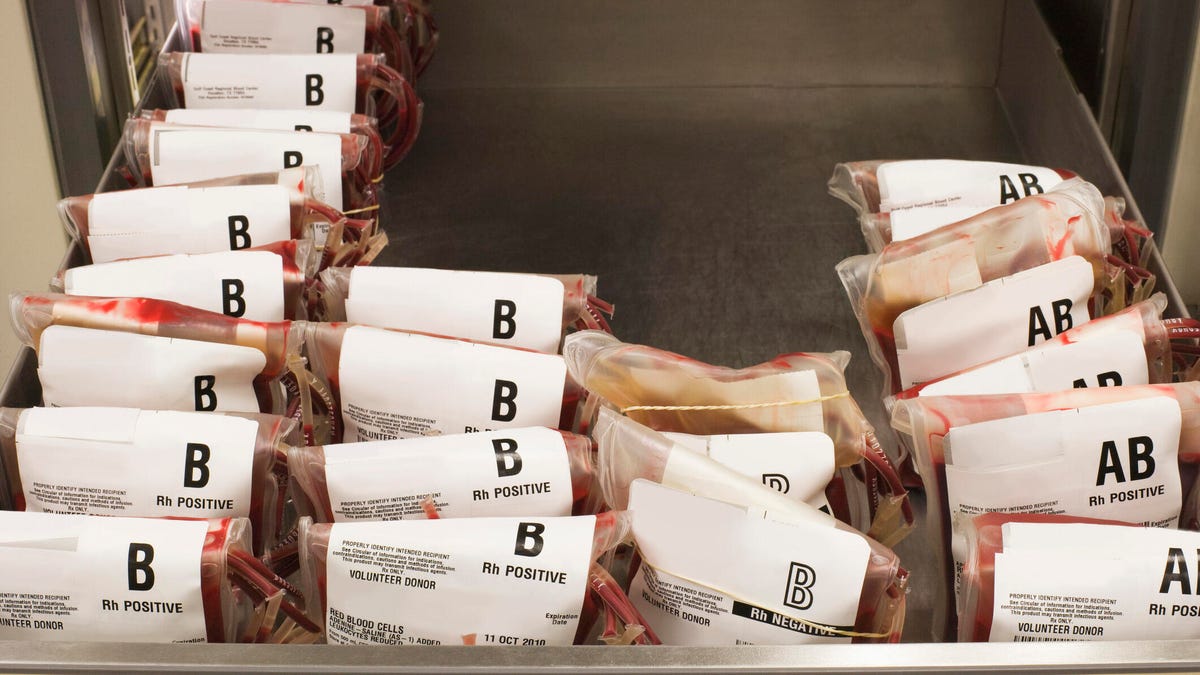Health
Discover Your Blood Type: Quick Methods to Find Out Now

Knowing your blood type is essential for various medical reasons, including risk assessment for certain health conditions and preparedness in emergencies. If you’re unsure about your blood type, there are several straightforward methods to confirm it quickly and easily.
Understanding Blood Types
Blood is classified into one of eight groups: A-positive, A-negative, B-positive, B-negative, O-positive, O-negative, AB-positive, and AB-negative. The classification depends on the presence of specific antigens on the surface of red blood cells. These antigens include:
– **A antigen** for Type A blood
– **B antigen** for Type B blood
– **Both A and B antigens** for Type AB blood
– **No A or B antigens** for Type O blood
Additionally, the Rhesus (Rh) factor further categorizes blood as either positive or negative. Approximately **80% of the population** is Rh positive, meaning they possess Rh proteins on their red blood cells.
Methods to Determine Your Blood Type
There are three primary ways to find out your blood type: through a doctor’s test, by donating blood, or using an at-home blood test. Each method varies in convenience and immediacy.
A doctor’s test is one of the most reliable options. During this procedure, a healthcare professional will draw a blood sample and perform two types of tests: forward typing and reverse typing. In forward typing, the sample is combined with antibodies against type A and B blood. The reaction indicates the blood type; for example, if the blood cells clump with the B antibodies, that signifies Type B blood.
Reverse typing involves mixing the patient’s serum (the liquid component of blood) with known type A and B blood cells. If the serum clumps with type A cells, the individual has Type B blood, and vice versa. It is advisable to contact your doctor’s office to inquire about the cost of this test and whether it is covered by insurance.
Alternatively, donating blood can be a practical way to discover your blood type. While results may not be immediate, you can ask the blood donation staff for your blood type after the donation process is completed.
For those seeking immediate results, at-home blood type testing kits are available. These kits typically require a finger prick to obtain a small blood sample. Users apply their blood to a test card and compare the results to a provided chart. This method generally yields results within minutes, making it a convenient option for many.
Understanding your blood type can enhance your health awareness and preparation for medical situations. It is recommended for individuals to regularly check and know their blood type for personal health management.
-

 Technology5 months ago
Technology5 months agoDiscover the Top 10 Calorie Counting Apps of 2025
-

 Technology2 weeks ago
Technology2 weeks agoOpenAI to Implement Age Verification for ChatGPT by December 2025
-

 Health3 months ago
Health3 months agoBella Hadid Shares Health Update After Treatment for Lyme Disease
-

 Health3 months ago
Health3 months agoAnalysts Project Stronger Growth for Apple’s iPhone 17 Lineup
-

 Health3 months ago
Health3 months agoErin Bates Shares Recovery Update Following Sepsis Complications
-

 Technology5 months ago
Technology5 months agoDiscover How to Reverse Image Search Using ChatGPT Effortlessly
-

 Technology3 months ago
Technology3 months agoElectric Moto Influencer Surronster Arrested in Tijuana
-

 Technology2 months ago
Technology2 months agoDiscover 2025’s Top GPUs for Exceptional 4K Gaming Performance
-

 Technology5 months ago
Technology5 months agoMeta Initiates $60B AI Data Center Expansion, Starting in Ohio
-

 Technology5 months ago
Technology5 months agoRecovering a Suspended TikTok Account: A Step-by-Step Guide
-

 Health5 months ago
Health5 months agoTested: Rab Firewall Mountain Jacket Survives Harsh Conditions
-

 Lifestyle5 months ago
Lifestyle5 months agoBelton Family Reunites After Daughter Survives Hill Country Floods









